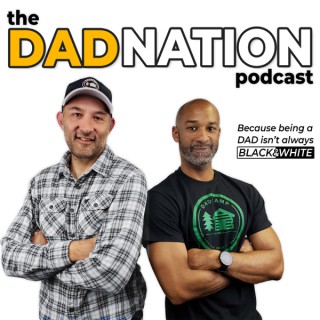Podcasts about practicing the way
- 261PODCASTS
- 1,278EPISODES
- 38mAVG DURATION
- 5WEEKLY NEW EPISODES
- Feb 23, 2026LATEST
POPULARITY
Best podcasts about practicing the way
Latest news about practicing the way
- Lest We Drift Tim Challies - Feb 7, 2025
- ‘Practicing the Way’ in the Church: Analyzing the Comer Option The Gospel Coalition - Feb 6, 2025
- The More We Hide, the Less We Heal Logos Bible Software Blog - Feb 27, 2024
Latest podcast episodes about practicing the way
Ben Chase begins our new series on Solitude with a sermon called A Quiet Place. This sermon series is based on resources provided by Practicing The Way. Sunday February 23rd, 2026.
Practicing the Way - Crafting a Rule of Life, February 22, 2026
Week 7: Crafting a Rule of Life Practicing the Way is a Christian spiritual formation movement, popularized by John Mark Comer, focused on becoming an apprentice to Jesus by learning "the way" of life He modeled, emphasizing spiritual disciplines (like Sabbath, solitude, prayer, generosity) within community to transform daily habits into Christ-like living, all detailed in a free course, book, and resources. It's about deep transformation, moving beyond mere belief to actively living out Jesus' teachings through practices that foster intimacy with God and becoming like Him in a busy world. February 22, 2026 Speaker: Pastor Kurt Buchanan
Solitude (4/4) | Practicing The Way of Jesus
Fill-In Notes: https://churchlinkfeeds.blob.core.windows.net/notes/39900/note-259566.html Continuing the Conversation 1. What rises to the surface when everything gets quiet? When you remove noise, screens, and conversation, what shows up first anxiety, restlessness, boredom, relief? What might that reveal about whats really shaping your inner life? How could naming that honestly before God change you? 2. What are you most tempted to reach for when you feel uncomfortable? When solitude feels awkward or tense, what do you instinctively grab your phone, productivity, conversation, food, distraction? 3. Where is your identity most anchored right now? In success? Ministry fruit? Approval? Busyness? Being needed? 4. What would it realistically look like to practice solitude this week? Not ideally realistically. When could you schedule 10 intentional minutes? What obstacle will likely resist you? How can this group encourage you to follow through?
Practicing the Way: reflecting the love of God
In week three of our series on being an apprentice of Jesus - based on John Mark Comer's book ‘Practicing the Way' - Joanna looks at how we become more like Jesus. How are we transformed by the renewing of our minds to be the people we were created to be who reflect the love of God to those around us? (Romans 12:1-2)
Practicing The Way Introduction: Apprentice to Jesus
Have you ever wanted to experience the abundant life of Jesus? Ps. Steve outlines the what, how, and why behind Practicing the Way, diving into the cultural context behind Jesus's identity as a first-century rabbi, and what that means for us as His followers as we practice being with Jesus, becoming like Jesus, and doing what Jesus did.
Week 6: Healing from Sin Practicing the Way is a Christian spiritual formation movement, popularized by John Mark Comer, focused on becoming an apprentice to Jesus by learning "the way" of life He modeled, emphasizing spiritual disciplines (like Sabbath, solitude, prayer, generosity) within community to transform daily habits into Christ-like living, all detailed in a free course, book, and resources. It's about deep transformation, moving beyond mere belief to actively living out Jesus' teachings through practices that foster intimacy with God and becoming like Him in a busy world. February 15, 2026 Speaker: Lead Pastor Steve Atkins Used with permission. CCLI Streaming License: 20979318
February 15, 2026 AM: Practicing the Way: Service - Kinship (Brandon Haan)
Matthew 20:20-28
Practicing the Way: Regeln für mehr Jesus im Leben | Felix Ronsdorf @WillowCreek2026
Felix Ronsdorf führte an der Willow-Creek-Konferenz 2026 in Dortmund ein Live-Interview mit US-Bestsellerautor John Mark Comer. Der Leverkusener Pastor und Speaker ist Leiter der «Practicing-the-Way»-Bewegung im deutschsprachigen Raum. Sie hat zum Ziel, Christen, Kirchen und Leitenden zu helfen, den Lebensstil von Jesus neu zu entdecken oder zu erlernen (passend dazu der Titel eines von Comers zentralen Büchern: «Leben vom Meister lernen»).Im Livenet-Talk mit Florian Wüthrich direkt an der Konferenz spricht er darüber, wie dies gelingen kann und wie er es ganz bewusst in sein Leben als Leiter, aber auch als Familienvater einbaut. Dabei bleibt es nicht bei theoretischen Vorsätzen, sondern wird ganz praktisch greifbar für den Alltag.Zum Comer-Talk mit Beat Staub: https://youtu.be/p1LaVLweBcQ
Practicing the Way (Wk. 6) - Feb. 8, 2026 - Trey Hardimon
Week 6 of the Practicing the Way series.
Practicing the Way (Wk. 4) - Jan. 25, 2026 - Andy Turner
Andy continues in week 4 of the sermon series.
Practicing the Way (Wk. 5) - Feb. 1, 2026 - Andy Turner
Week 5 of Practicing the Way series.
Solitude (3/4) | Practicing The Way of Jesus
Fill-In Notes: https://churchlinkfeeds.blob.core.windows.net/notes/39900/note-258941.html Continuing the Conversation Why might solitude prayer often lead people to more clarity on their direction or decisions? What distractions make it hard for you to pray the way Jesus did? How does Jesus prayer in Gethsemane reshape your understanding of honest submission prayer? Mark 14:3239 (NLT) What is one concrete way you can imitate Jesus practice of solitude this week?
In the second of our sermons on Practicing the Way Joanna looks at how we abide in God. What does it look like to make our home in Him? (John 15: 1-8)
#57 John Mark Comer's Practicing the Way: Serious Theological Concerns
In this episode of Unshaken Faith, we take a careful, biblical look at Practicing the Way by John Mark Comer, a book that has quickly gained popularity in Christian discipleship and spiritual formation circles. Many listeners have asked whether we recommend it and after a thorough review, the answer is no. We walk through the book's core framework, its view of spiritual formation, and how it defines discipleship and transformation. While some of the practices it encourages may sound helpful on the surface, we found deeper theological concerns underneath including influences that overlap with contemplative spirituality, charismatic/NAR-style formation models, progressive-leaning theology, and sacramental or mystical streams more commonly associated with Eastern Orthodox and Roman Catholic spirituality.Most importantly, we evaluate the book's message against the biblical gospel. Does it clearly present salvation by grace through faith? Does it ground transformation in the finished work of Christ or shift the center toward practices and processes? We explain where we believe the message drifts and why that matters for everyday Christians.Our goal is not to attack people, but to equip believers with discernment. We encourage you to think biblically, test everything against Scripture, and stay rooted in the true gospel.If this book has been recommended to you, or if you're already reading it, this episode will help you evaluate it through a clear theological lens.Consider the Lillies, by Johnny ArdavanisHappy Lies, by Melissa DoughertyAlisa's video on generational curses
Book Review: Practicing the Way by John Mark Comer
The Practitioners Podcast: Applying Jesus Style Disciple Making in Every Day Life
Anecdote: Why we are doing this 1st ever book review: This isn't a book that's going to lead to wide spread disciple making progress in your church. Takeaway: Good book about discipleship, not great for disciple making. Action Step: Regularly read DM books! Show Notes: Justin's Book Notes on Practicing the Way Watch Us On YouTube Justin's Website Tony's Website Navigators Church Ministries The Follow2Lead Podcast
February 8, 2026 AM: Practicing the Way: Service - Availability (Steve Winkle)
Luke 10:25-37
Solitude (2/4) | Practicing The Way of Jesus
Fill-In Notes: https://churchlinkfeeds.blob.core.windows.net/notes/39900/note-258141.html Continuing the Conversation Why do you think real formation often happens in silence rather than activity? How might the pianist illustration help you understand spiritual formation? What usually surfaces for you when you slow down and get quiet? How might your life look different if silence became a regular rhythm?
Following Jesus and becoming like him requires me to share my life with others.
February 1, 2026 AM: Practicing the Way: Service - Hiddenness (Brandon Haan)
John 13:1-17
Scripture Reading - Matthew 5:1-12
Zack begins our series "Practicing the Way," a multi-week discussion based on John Mark Comer's book of the same name.
Welcome to Valleybrook Church Online! A place where all are Welcomed to Community & Challenged by the Gospel✝️ Today's Message: "Gospel-Centered" is part of our Practicing The Way series.
Welcome to Valleybrook Church Online! A place where all are Welcomed to Community & Challenged by the Gospel✝️ Today's Message: "Gospel-Centered" is part of our Practicing The Way series.
Solitude (1/4) | Practicing the Way of Jesus
Fill-In Notes: https://churchlinkfeeds.blob.core.windows.net/notes/39900/note-257531.html Continuing the Conversation What competes most with your ability to be with Jesus during your week? Why is it easier to do things for Jesus than to slow down and be with Him? What distractions do you need to step away from to experience Jesus presence more clearly? What is one realistic way you could practice solitude this week simply to be with Jesus?
Solitude (1/4) | Practicing the Way of Jesus
Fill-In Notes: https://churchlinkfeeds.blob.core.windows.net/notes/39900/note-257531.html Continuing the Conversation What competes most with your ability to be with Jesus during your week? Why is it easier to do things for Jesus than to slow down and be with Him? What distractions do you need to step away from to experience Jesus presence more clearly? What is one realistic way you could practice solitude this week simply to be with Jesus?
The Bible promises that transformation in the Christian life is possible—but it is not inevitable. What does it take to see our lives change as we walk with Jesus? What temptations hold you back from victory and joy as a believer? For answers to these vital questions, don't miss Equipped with John Mark Comer about intentionally becoming an apprentice of Jesus. Featured resource:Practicing the Way: Be with Jesus. Become Like Him. Do as He Did. by John Mark Comer January thank you gift:Practicing the Way: Be with Jesus. Become Like Him. Do as He Did. by John Mark Comer Equipped with Chris Brooks is made possible through your support. To donate now, click here.
January 25, 2026 AM: Practicing the Way: Service - Love (Brandon Haan)
Matthew 7:15-23
To be a follower of Jesus is to do the things that Jesus did.
Practicing the Way (Wk. 1) - Jan. 4, 2026 - Andy Turner
Lead Minister Andy Turner returns from sabbatical to start a new sermon series called "Practicing the Way."
Practicing the Way (Wk. 2) - Jan. 11, 2026 - Andy Turner
Andy Turner continues in week 2 of Practicing the Way.
Welcome to Valleybrook Church Online! A place where all are Welcomed to Community & Challenged by the Gospel✝️ Today's Message: "The Practice of Community" is part of our Practicing The Way series.
Practicing the Way (Wk. 3) - Jan. 18, 2026 - Andy Turner
Andy Turner continues in the Practicing the Way series.
Welcome to Valleybrook Church Online! A place where all are Welcomed to Community & Challenged by the Gospel✝️ Today's Message: "The Practice of Community" is part of our Practicing The Way series.
Fill-In Notes: https://churchlinkfeeds.blob.core.windows.net/notes/39900/note-256693.html Continuing the Conversation Go around your room and let every person answer this one question for each of these 4 movements (one at a time) that guide the day: Describe what this movement could look like for you in a potential 24hr Sabbath flow: STOP Choosing When Enough Is Enough = To cease work, striving, and productivity. Name your STOP list (What you will not do on this day?) REST Letting Your Body, Mind Soul Recover = To engage in activities that restore body soul energy rather than drain it. 1-2 of these: Unhurried sleep * Walks * Reading that calms rather than stimulates DELIGHT Relearning Joy Without Guilt = To enjoy Gods good gifts with gratitude, not guilt. Good food * Music * Time w/pple who bring joy * Beauty, laughter, creativity WORSHIP Re-centering Life on God = To intentionally turn attention affection toward God. 1 of these: Scripture reading * Prayer * Singing * Gathering w/Gods pple (when possible)
You don't drift toward Christlikeness - you choose it.
Welcome to Valleybrook Church Online! A place where all are Welcomed to Community & Challenged by the Gospel✝️ Today's Message: "The Practice of Scripture & Prayer" is part of our Practicing The Way series
Welcome to Valleybrook Church Online! A place where all are Welcomed to Community & Challenged by the Gospel✝️ Today's Message: "The Practice of Scripture & Prayer" is part of our Practicing The Way series
Fil-In Notes: https://churchlinkfeeds.blob.core.windows.net/notes/39900/note-256236.html Continuing the Conversation 1. Jesus chose rest ahead of time, not only when feeling dead tired. Question: Looking at a normal week, what usually determines when you restexhaustion, convenience, or intentionand what would need to change for rest to become a protected rhythm rather than a last resort? 2. Jesus used Sabbath to engage God, not avoid life. Question: When you finally slow down, where do you naturally turn for relief or enjoyment, and how do those habits either draw you closer to God or quietly replace Him? 3. Sabbath helped Jesus rehearse who He was before what He would do. Question: During busy seasons, how does your sense of worth tend to drifttoward productivity, usefulness, or approvaland how might Sabbath help re-center your identity as a son or daughter rather than a performer? 4. Jesus joy flowed from trust in the Father, not ideal circumstances. Question: What brings you the deepest sense of delight when you rest, and what might that reveal about what youre trusting to satisfy your heart?
You cannot become like Jesus unless you spend time with Jesus.
Welcome to Valleybrook Church Online! A place where all are Welcomed to Community & Challenged by the Gospel✝️ Today's Message: "The Practice of Silence & Solitude" is part of our Practicing The Way series
Welcome to Valleybrook Church Online! A place where all are Welcomed to Community & Challenged by the Gospel✝️ Today's Message: "The Practice of Silence & Solitude" is part of our Practicing The Way series
Jason and Jeff discuss the book “Practicing the Way”, how it's impacted their lives and families and how it should influence us heading into a new year.
Practicing The Way Of Jesus | Matthew 7:24-27 | Coleton Segars
Practice the Way of Jesus Jesus does not flatter us with comforting abstractions. He speaks with piercing clarity. “Everyone who hears these words of Mine and puts them into practice…”—and there He draws the line that divides all humanity. Not between the moral and immoral, the religious and irreligious, the fortunate and the afflicted—but between the practiced and the merely informed. The striking truth of Jesus' words in Matthew 7 is that everything else is the same. The storm does not discriminate. Rain falls on obedience and disobedience alike. Winds beat against every house. The difference is not the weather of life but the weight-bearing obedience beneath it. One hears and does. The other hears and delays. And delay, in the kingdom of God, is already a decision. Throughout Scripture this pattern is relentless. God speaks; people respond—or refuse. Noah builds while the sky is blue and finds salvation when it turns black. Abraham keeps obeying long after obedience feels unreasonable and discovers that God keeps promises beyond biology. Moses lifts a staff, Israel walks, Naaman washes, blind eyes open, empty nets break with abundance. God's power is never detached from trust expressed through action. Equally clear is the sobering witness of those who heard and did nothing. They were invited. They were informed. They were near the truth. Yet they watched storms without experiencing salvation, commands without deliverance, Christ without transformation. It was not ignorance that robbed them—it was unpracticed truth. Jesus never asked for admirers. He commanded apprentices. “Teach them to obey,” He said—not merely to agree. Christianity left at the level of belief alone becomes weightless. It can grow numerically, organize efficiently, and yet remain untouched by the living power of God. But obedience—real, embodied obedience—becomes the narrow gate through which life flows. This is why practicing the way of Jesus feels so often unreasonable. Forgive when wounded. Give when anxious. Pray when exhausted. Speak when silence feels safer. These instructions offend our instincts because God has chosen the foolish-looking things to train our trust. We do not drift into this kind of life. We must aim. Jesus Himself told us it would be harder. Easier roads are always available—but ease is often destructive. What is easiest rarely fuels what is eternal. The narrow way is demanding, but it is alive. As Chesterton observed, Christianity is not tried and found wanting; it is found difficult and left untried. Yet hear the mercy in all this: Jesus never commands without empowering. He died not only to forgive sin, but to place His Spirit within us—to make obedience possible from the inside out. “It is God who works in you to will and to act…” Our responsibility is not self-powered righteousness, but surrendered cooperation. So where is the storm pressing hardest right now? Where do you long to see God's power break through? Do not ask first for relief—ask what obedience looks like there. Search the Scriptures. Seek counsel. Then act. Build there. Practice there. And you will find that the life you most truly crave is not found in hearing more—but in practicing what you already have heard.
Jesus invites us into a Christianity that is not just a set of beliefs but a way of life.











































































